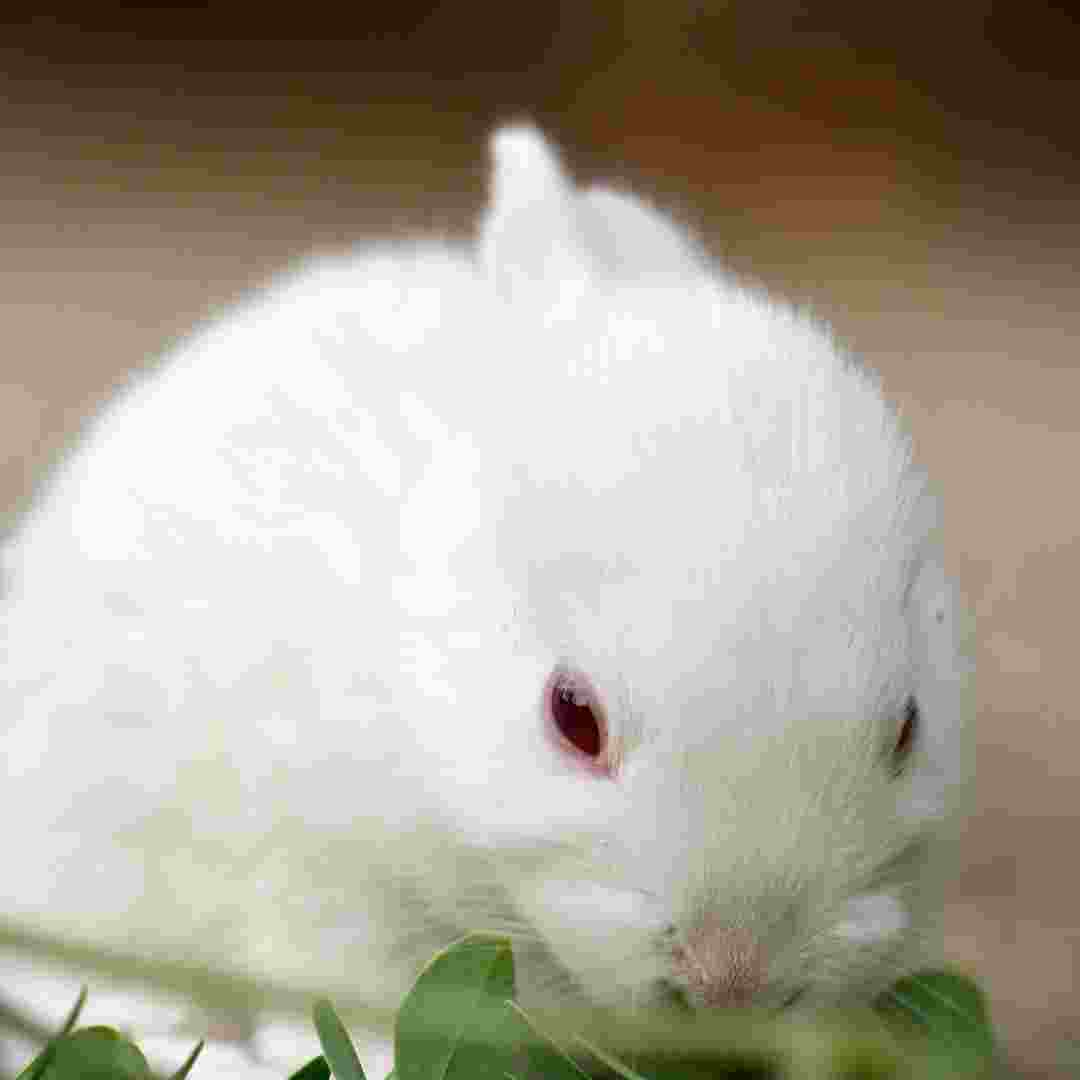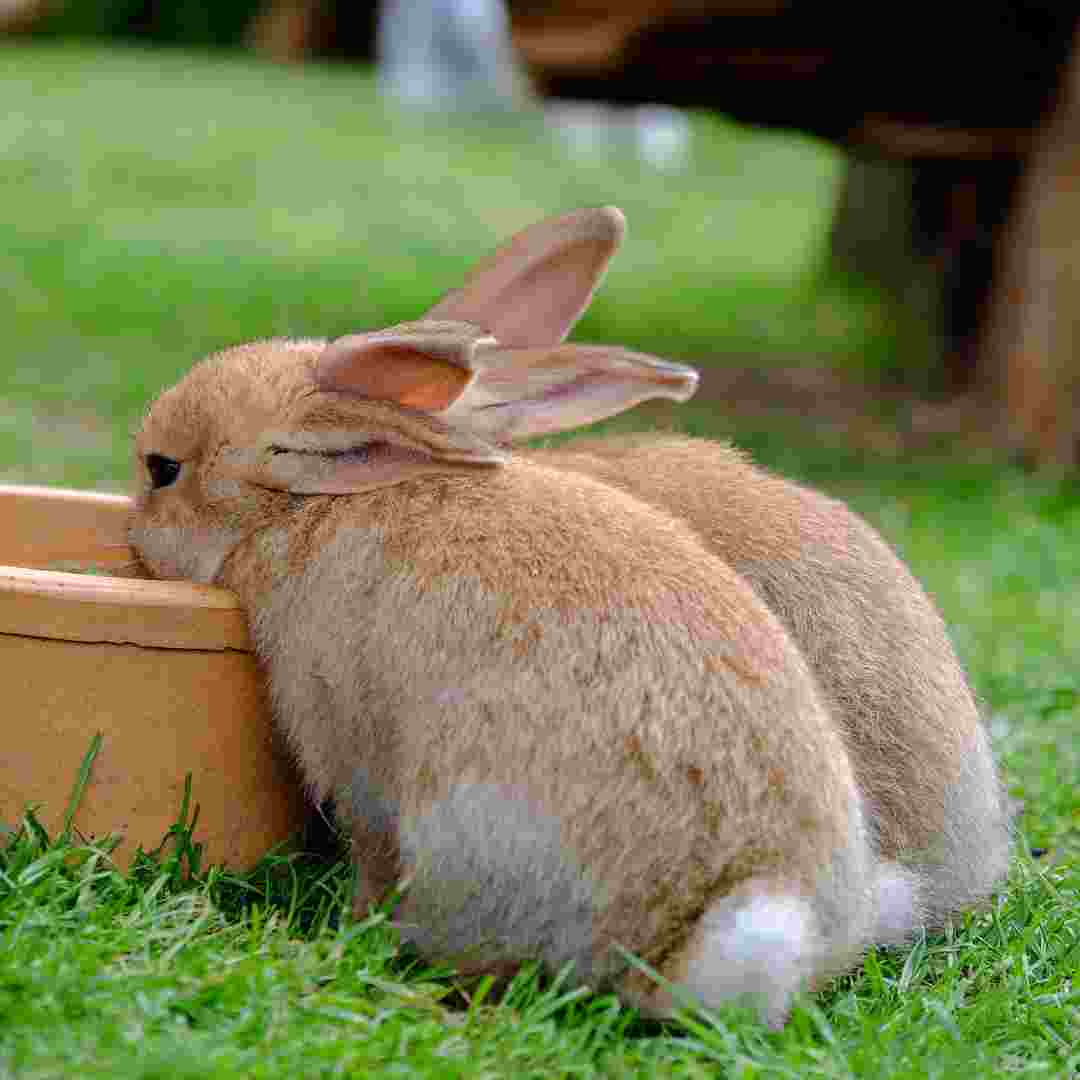Contents Table
Introduction
How much rabbit food should I feed my pet?
What sort of rabbit food should I feed my pet?
How to Measure Rabbit Food for Your Pet
Rabbit food provides what nutrients for your pet rabbit?
Selecting the Best Rabbit Food for Your Pet
Q&A
Conclusion
Introduction
Rabbits, one of the most popular pets, need a balanced diet. Knowing how much rabbit chow to feed your pet is crucial for its health. Size, age, and activity level determine rabbit food needs. The average healthy adult rabbit eats 1/4 cup of pellets, fresh veggies, and hay daily. To ensure your rabbit gets enough nutrients, feed it a variety of foods. Keep an eye on your rabbit's weight and alter its diet. With the appropriate nutrition, your rabbit may live long and healthily.
How much rabbit food should I feed my pet?
To keep your rabbit healthy, provide it a balanced diet. Rabbit food should be hay, fresh veggies, and some pellets.
Hay, high in fibre, should be your rabbit's main feed to support their digestive function. Give your rabbit timothy, oat, orchard, and meadow hay. Give your rabbit 1-2 cups of hay daily.
Feeding your rabbit fresh veggies is the second most important part. Give your rabbit carrots, broccoli, kale, and spinach. Give your rabbit 1-2 cups of vegetables daily.
Finally, give your rabbit a few pellets. Your rabbit's pellet diet should not exceed 10%. Give your rabbit a high-quality rabbit pellet. Give your rabbit 1/4 cup of pellets daily.
Follow these guidelines to feed your rabbit a balanced diet.
What sort of rabbit food should I feed my pet?
Feed your rabbit a balanced, high-fiber, low-sugar, low-fat diet. To ensure your rabbit has enough nutrition, offer them hay, fresh veggies, and a little pellets.
Hay is abundant in fibre and aids your rabbit's digestive tract, thus it should be their main food. Timothy, oat, and meadow hay are good. Hay is crucial for rabbit health, so give them maximum access.
Include fresh veggies in your rabbit's diet. Dark greens like kale, spinach, and romaine lettuce are healthy. You can also feed your rabbit carrots, celery, and bell peppers. Due to their sugar content, they should be administered in tiny amounts.
Finally, you should also offer your rabbit with a modest number of pellets. These should be optimised for rabbits and high in fibre and low in sugar and fat. Too many pellets can cause obesity in rabbits, so feed them a few teaspoons daily.
Following these rules will guarantee your rabbit gets the nutrition it needs to stay healthy and happy.
How to Measure Rabbit Food for Your Pet
Pet rabbits need the correct amount of food to stay healthy. Measure food accurately to ensure your rabbit gets enough. This guide shows how to measure rabbit food for your pet.
First, decide what your rabbit eats. Recommended quantities vary by food. Hay should be your rabbit's main diet, and you should feed it one cup for two pounds of body weight per day. Your rabbit should eat around one-quarter cup of pellets for two pounds of body weight every day.
Measure the food next. For hay, use a measuring cup or kitchen scale. For pellets, use a measuring cup or spoon. Overfeeding can cause obesity and other health issues, so measure meals accurately.
Finally, give your rabbit enough food. Feed your rabbit in the morning and evening. Put the measured food in your rabbit's bowl and remove any uneaten food after a few hours.
Following these instructions will guarantee your rabbit gets enough food. Feed your rabbit twice a day with correct measurements. With enough food, your rabbit will be healthy and happy.
Rabbit food provides what nutrients for your pet rabbit?
Healthy pet rabbit diets include rabbit food. Rabbits need a high-fiber, low-fat diet. Rabbit food should be hay, fresh veggies, and some pellets.
Hay should be a rabbit's main food. Hay contains vitamins, minerals, fibre, and protein. It also prevents hairballs and aids digestion.
Rabbits need fresh vegetables too. Vitamins, minerals, and fibre are in vegetables. Carrots, celery, kale, and parsley are rabbit-friendly vegetables.
Pellets contain concentrated nutrients and should only be fed to rabbits in modest amounts. Fiber-rich pellets should be low in sugar and fat. They should lack artificial colours, flavours, and preservatives.
Rabbit food should be hay, fresh veggies, and a few pellets. Hay contains vitamins, minerals, fibre, and protein. Fresh vegetables include vitamins, minerals, and fibre. Fiber-rich pellets should be low in sugar and fat. Feeding your rabbit a balanced diet keeps them healthy and happy.
Selecting the Best Rabbit Food for Your Pet
Choosing the right rabbit food is crucial to their health and happiness. Rabbits are herbivores and should eat hay, fresh vegetables, and some pellets. Choose the best rabbit food using these guidelines.
First, your rabbit should eat mostly hay. Hay offers fibre and aids digestion. Avoid dusty or mouldy hay and choose green, fresh-smelling hay.
Second, your rabbit should eat some fresh veggies. Dark leafy greens, carrots, and celery are high-fiber, low-sugar veggies. Avoid sugary veggies like corn and peas.
Third, feed your rabbit a few pellets. Look for rabbit-specific pellets with a balanced vitamin and mineral composition. Avoid pellets with artificial colours, flavours, or preservatives.
Finally, check and adjust your rabbit's nutrition. Reduce pellet intake if your rabbit is gaining weight. If your rabbit is losing weight, feed them more hay and veggies.
These suggestions will ensure your rabbit gets the optimum nourishment. A balanced diet will keep your rabbit healthy and happy for years.

Q&A
1. How much rabbit chow should a rabbit eat daily?
A: Rabbits should take 1/4 to 1/2 cup of food every day, depending on size.
2. What should rabbits eat?
Rabbits should consume hay, fresh vegetables, and a few pellets.
3. How often should rabbits eat?
A: Rabbits should eat breakfast and dinner.
4. What should I not feed my rabbit?
A: Avoid giving your rabbit sweet snacks, processed foods, and high-fat foods.
5. How can I determine my rabbit is fed enough?
A: Checking your rabbit's weight and fur for health can indicate proper nutrition. If your rabbit is losing weight or has dull, dry fur, it may not be eating enough.
Conclusion
In conclusion, rabbit food intake depends on size, age, and activity level. Young, active rabbits should eat more than older, inactive ones. Aim to feed rabbits 1/4 cup per 2 pounds each day. To maintain a healthy diet, provide fresh veggies and hay everyday.
